Written by Tom Simpkins.
Many of us know just how fun it can be to indulge in “geeky” habits, ranging from the gripping stories found within the pages of comic books to the tense battles of wits that many board games can provide. However, few could argue that one of the ‘geekiest’ pastimes is also one of the greatest sources for entertainment that is fueled by nought but dice and imagination: Dungeons & Dragons.
Luckily for those who have enjoyed tabletop gaming since Gary Gygax first unleashed Advanced Dungeons & Dragons onto the world, D&D has become increasingly popular over the last few years. No doubt aided by such pop-cultural hits as Stranger Things and The Big Bang Theory, D&D has enjoyed a surge in popularity that has thrust it from dank basements into the spotlight of the public eye. Celebrities are playing it, charity sessions are raising thousands of dollars, and tables across the world are seeing many minds come together to create bountiful new worlds and whimsical characters that collect treasure, slay monsters, and charm (or revile) NPCs.
Whether it’s the exposure granted by podcasts and live shows or the zeitgeist becoming more accepting of “nerd culture,” D&D is providing itself as a fantastic method for storytelling and entertainment, not unlike the boom that video games saw years ago. Playing as an entirely different character in an entirely different world; accomplishing feats that few could ever hope to achieve; the allure is undeniable, as are the comparisons between these two mediums of entertainment. Thanks to this, it’s not hard to consider the two worlds crossing over, with D&D themed games enjoying popularity (many seemed to like Baldur’s Gate, and a new installment in the franchise appears to be in the works), it goes without saying that some characters from beloved franchises would make for fantastic PCs.
Today, Spur Creative combines the two worlds of video games and Dungeons and Dragons to create a literal dream team. With 13 classes to choose from and almost half a century of fictional characters to choose from, who serves as one of gaming’s greatest D&D parties?
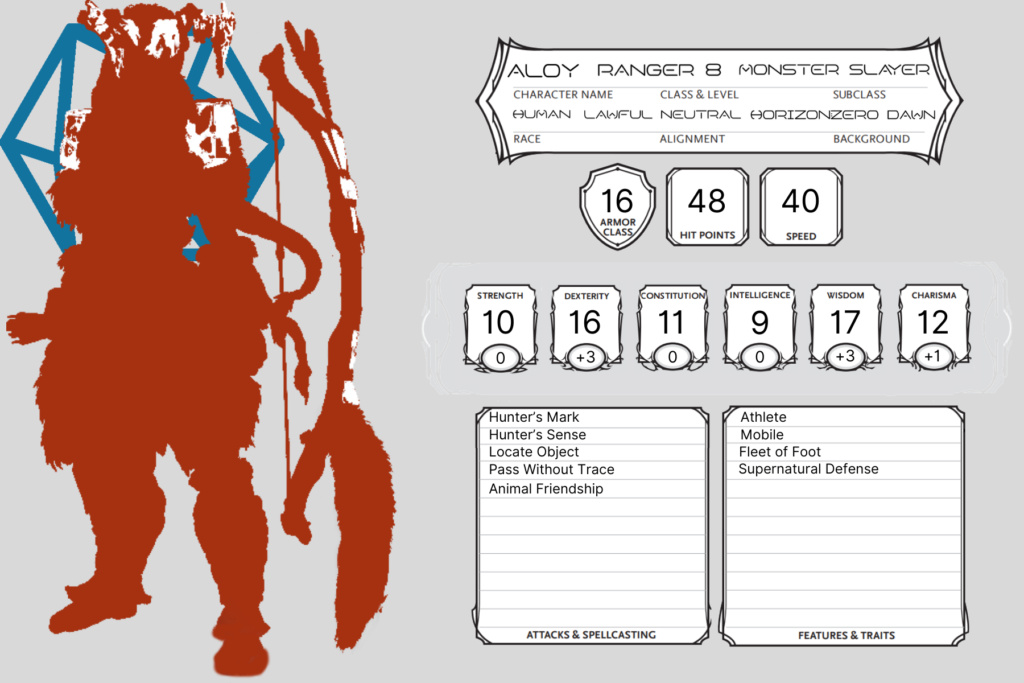
The Ranger
Who?
Aloy, the protagonist of the Horizon franchise.
Why?
Rangers have a versatile subclass known as the Monster Slayer; someone who takes down mechanical beasts sounds like a pretty apt fit.
Pros:
Traditionally seen wielding a bow and seamlessly traversing almost any kind of terrain, Rangers are adaptable, cunning, and capable in both long and short-range fights. While many archers are found across the years of video game history, anyone who has played Horizon: Zero Dawn will know just how well Aloy fits the bill for a Ranger.
Quickly adjusting to post-modern society, swiftly mastering guerrilla-style weapons, and triumphing in clashes against robotic monsters are just some of the ways in which Aloy proves herself as a formidable protagonist, yet it’s her ability to blend into grasslands, snowy mountains, and rocky cliff sides that makes her an excellent Ranger.
Cons:
As impressive as Aloy is, she’s still young and fresh-faced to society in any form. Her skills serve her well in the field, and she eventually becomes diplomatic enough to offer council to community leaders, but she is still a human in a world mostly controlled by superior beasts. Aloy is certainly formidable but has plenty of room to grow.
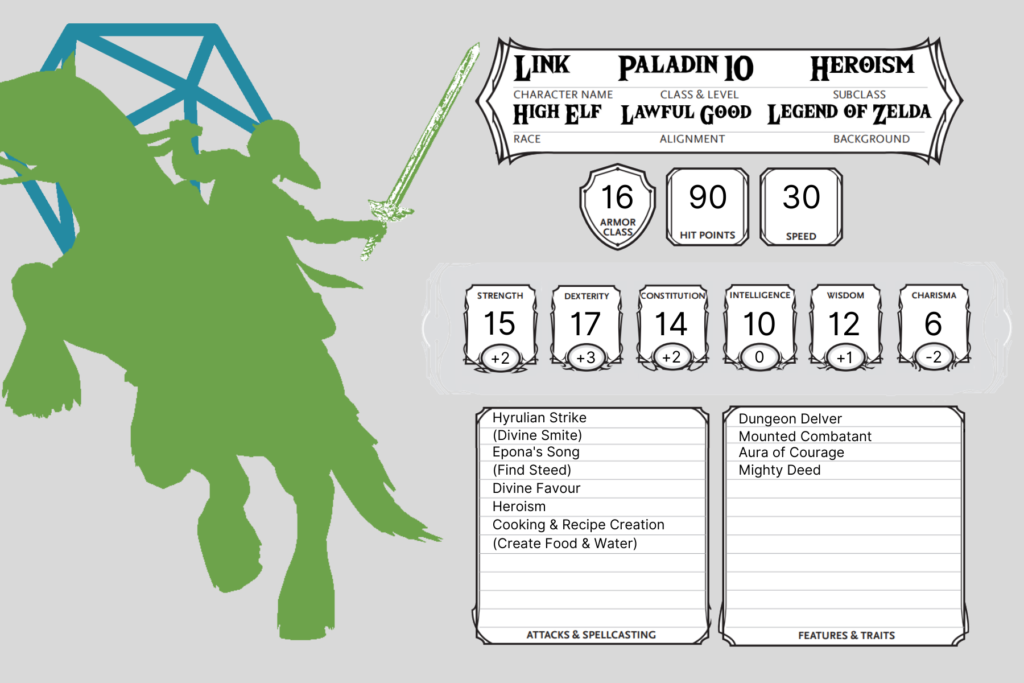
The Paladin
Who?
Link, the protagonist of The Legend of Zelda franchise.
Why?
Oath of Heroism Paladins fight for what is right and sacred in their lands; Link’s ‘the chosen one’ of every LOZ timeline so he seems right for the class.
Pros:
Many iterations of Paladins will see them as servants of a god, channelling their powers through the righteousness of a holy mission. However, not all Paladins are traditionally pious, and some even act without primarily doing so for a deity. One such Paladin that fights not for gods but for the realm, its people, and its princess, is Link, who has consistently been called to action throughout video game history.
Whether he’s a child or a young adult, Link is perpetually drawn to the Holy Avenger of the LOZ world, the Master Sword, and becomes proficient in an armoury’s worth of different weapons and tools whilst on his quest. Also capable of utilising magic items, such as the reality-bending Ocarina of Time, Link is a classic smite-dealing combatant who is, more often than not, the sole thing standing between the forces of evil taking over his world.
Cons:
As a silent protagonist, it’s hard to argue that Link wouldn’t have the greatest Charisma stats, and his fluctuating Animal Handling skills often leaves him at the mercy of the omnipotent wrath of cuckoos. However, few video game characters personify the hero’s journey as well as Link does, which proves that as much as the odds are stacked against him, he’s certainly capable of growing stronger (even if a lot of his strength comes from items and boons he collects on his quests).
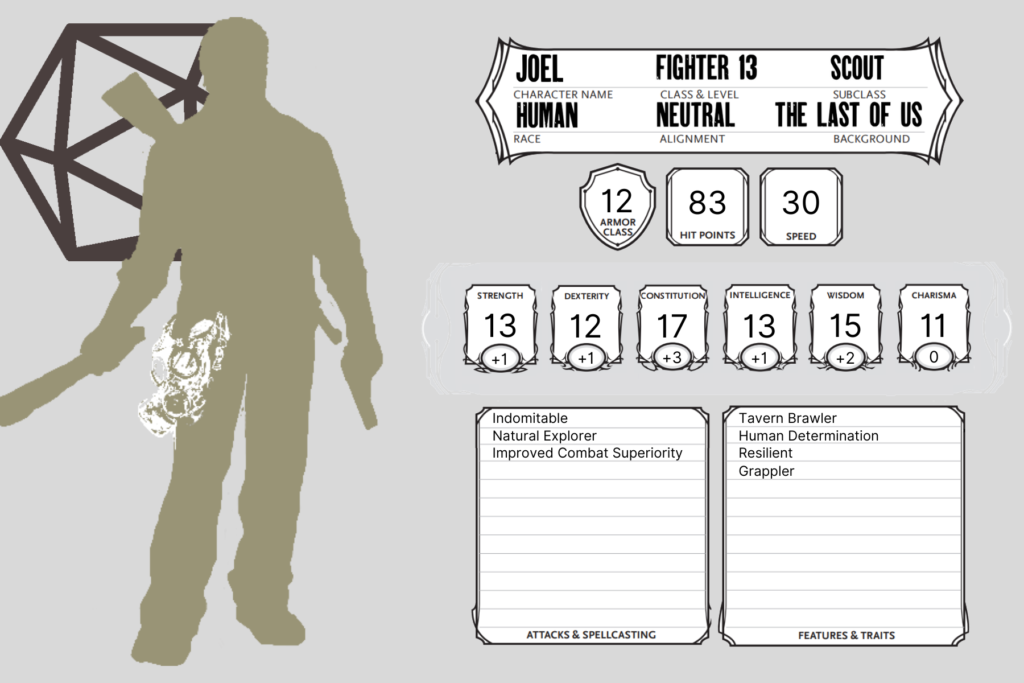
The Fighter
Who?
Joel, the protagonist of the first entry in The Last of Us franchise.
Why?
As a human struggling to survive in a harsh world, Joel has had to fight, adapt, and be smart to fend off bandits, corrupt soldiers, and fungus-infected monsters.
Pros:
As “basic” as it may seem to play as a Human Fighter, Joel proves himself as anything but basic, thanks in no small part to the various feats he would undeniably have. In the world of The Last of Us, regular brawls with bandits, infected monsters, and even other survivors will have made Joel proficient in almost anything he could get his hands on; whether it was a makeshift weapon, a means of concealing his presence, or even patching up his own wounds.
The Fighter class has many subclasses. Yet, in Joel’s case, it would pay to be a Scout—cautiously planning each encounter and making the most of his environment. By the end of The Last of Us, Joel has done the unthinkable of protecting a young girl across hundreds of miles, taking down hordes of infected and factions of fellow humans alike; all due to cunning, strength and determination.
Cons:
Throughout The Last of Us 1 and 2, Joel showcases just how much of a powerhouse he can be, but he also reveals just how vulnerable he can be. After struggling to survive for over two decades in a harsh, unforgiving world, Joel would certainly be a Fighter worthy of respect, yet not one that would be considered invincible.
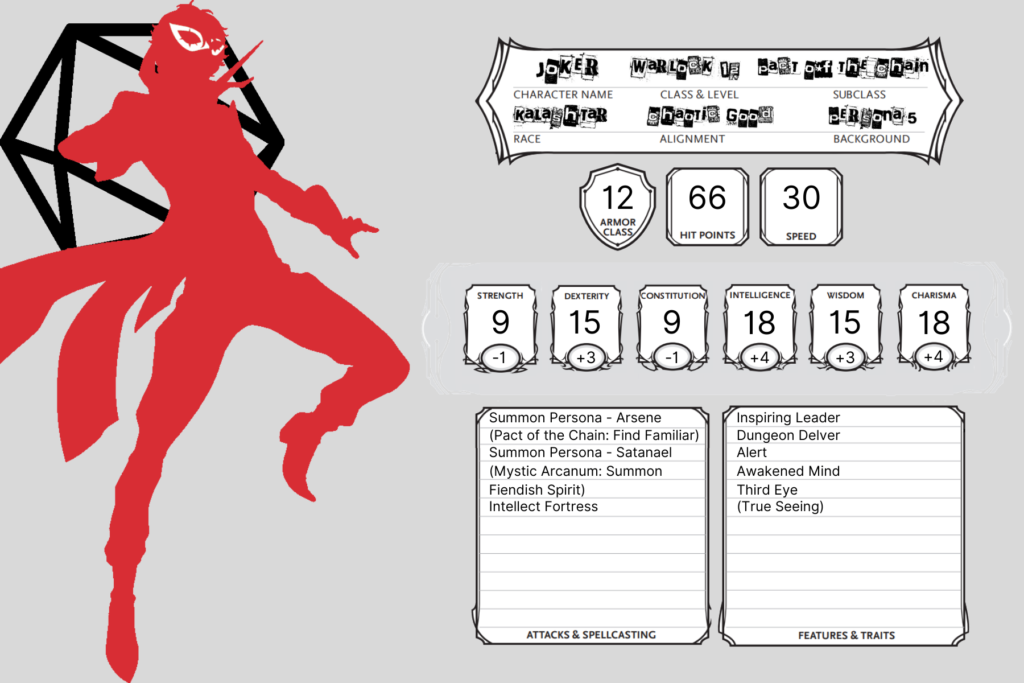
The Warlock
Who?
Joker, the protagonist of Persona 5.
Why?
A Trickster who agrees to a pact from an enigmatic, god-like force for supernatural powers, Joker’s a fine candidate for a ‘Pact of the Chain’ Warlock.
Pros:
While Warlocks can be defined in many ways in our world, D&D classifies Warlocks as those who are granted magical abilities by pledging themselves, making a deal with, or binding themselves to a force greater than themselves. Whether it’s a grand fairy, a talking sword, or, in Joker’s case, a long-nosed man in a prison-like space known as the Velvet Room, Warlocks begin their stories with some form of a contract. Like any good Warlock, Joker’s pact takes a unique form, that being the Pact of the Chain—not just due to the game’s visual motifs, but due to the many boons in which it grants.
Joker’s magical prowess isn’t his only strength though as, despite having access to a wealth of different “familiars” (a.k.a., Personas), he becomes a blight against corruption by making good use of his natural charisma, enlisting various friends & confidants, as well as his superior mind for planning, concocting means of infiltration, and takedowns of huge world figures. Certain feats also lend themselves strikingly well to Joker’s character too, such as the Dungeon Delver (apt for one spending so much time infiltrating Palaces) and the Inspiriting Leader feats.
Cons:
Mighty as he may be, Joker’s Warlock capabilities aren’t omnipotent, as to become a world-shattering force he needs not only the help of his comrades but for the whims of fate to coerce with his plans. These factors prevent him from being a truly high-level character on his own, but perhaps if he multi-classed as an Arcane Trickster Rogue…

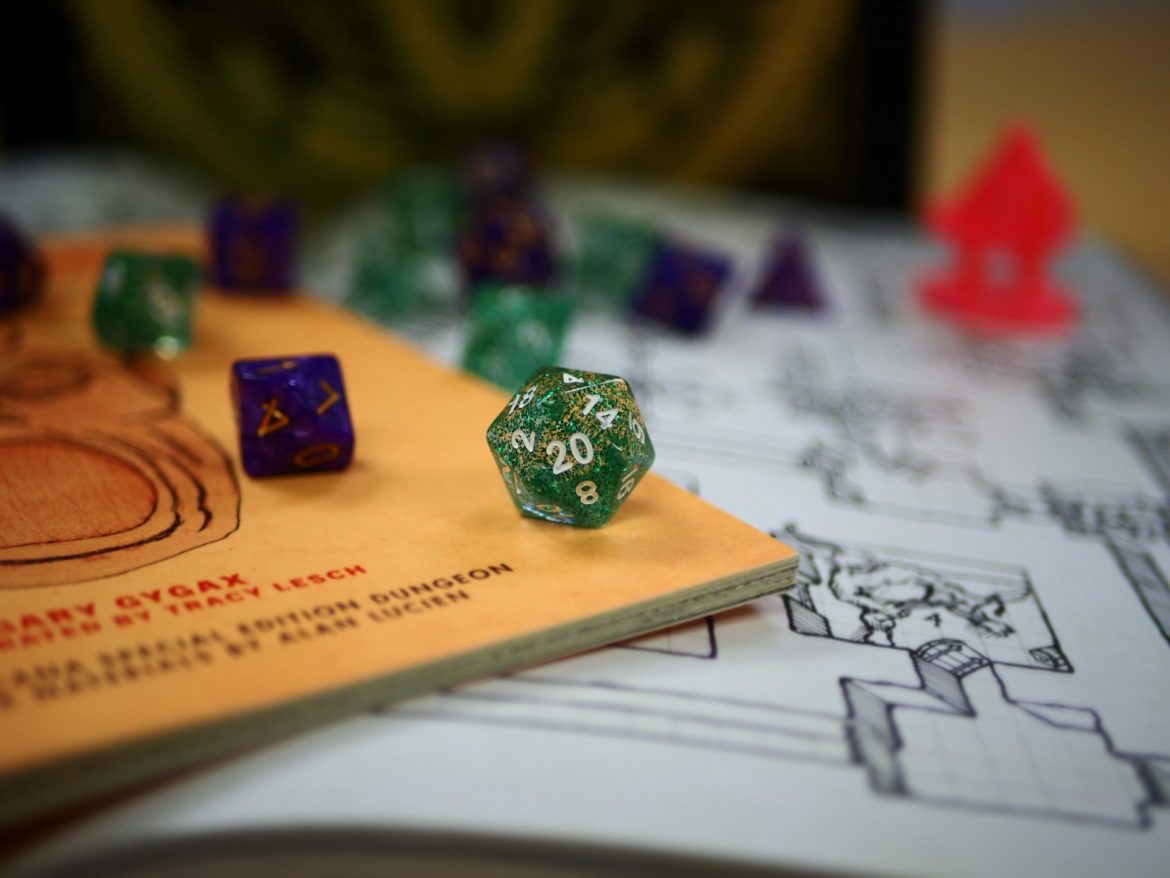
Comments are closed.